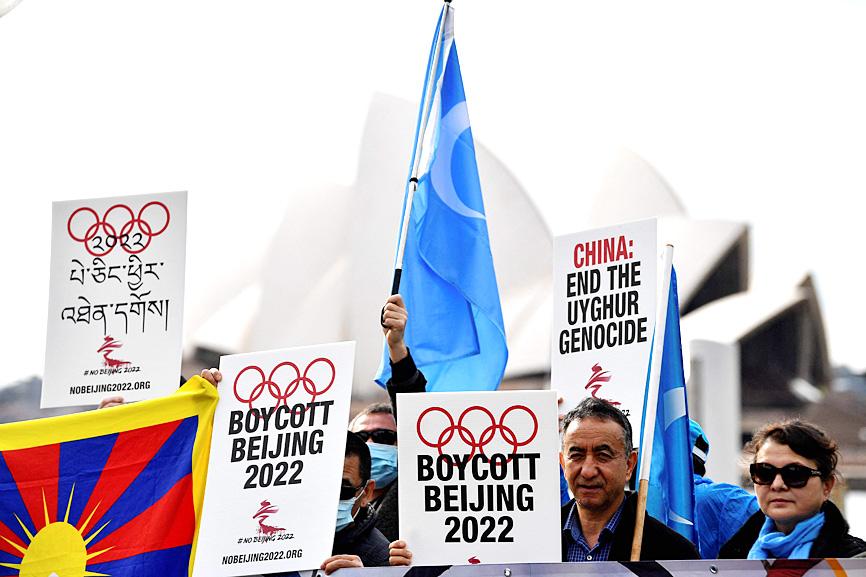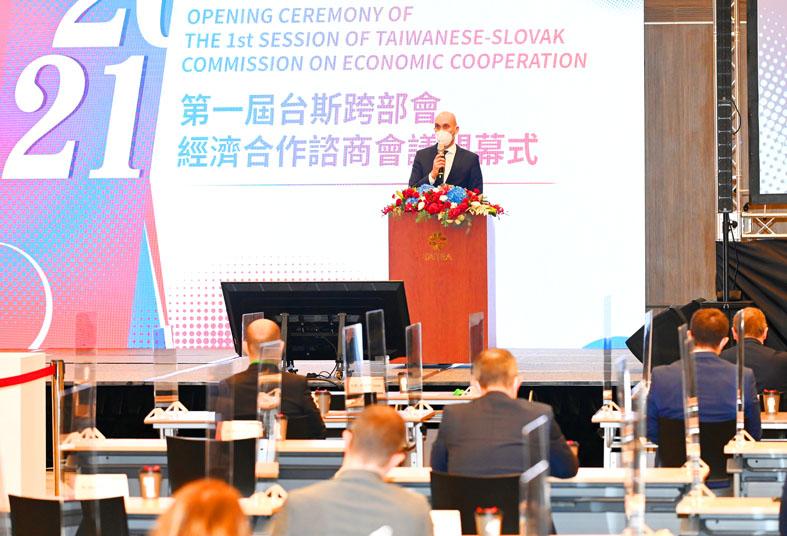China has reacted angrily to the US government’s diplomatic boycott of next year’s Winter Olympics, as more nations said they would consider joining the protest over Beijing’s human rights record and New Zealand announced that it would not send representatives to the Games.
Chinese officials dismissed Washington’s boycott as “posturing and political manipulation,” and tried to discredit the decision by claiming that US diplomats had not even been invited to Beijing.



 The News
The News Protesters on June 23 hold up placards and banners as they attend a demonstration in Sydney to call on the Australian government to boycott the Beijing Winter Olympics over China’s human rights record.
Protesters on June 23 hold up placards and banners as they attend a demonstration in Sydney to call on the Australian government to boycott the Beijing Winter Olympics over China’s human rights record.








